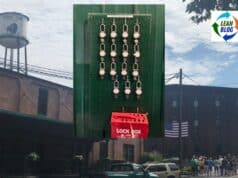It's great to see examples of manufacturing companies being flexible and adaptive in these challenging times. Lean methods are often providing a huge boost in what can be life-saving efforts.
Lean often gets mislabeled as a “low inventory” system (or “zero inventories”) but that misses the point. We don't just lower inventory at all costs (anybody can make that mistake without Lean) — we have to create systems and supply chains that might possibly allow for low inventory.
Here's a blog post from March 9th:
But again, Lean is not equal to “just in time” or JIT. That's just one component of the Toyota Production System.
Toyota says that JIT is:
Making only “what is needed, when it is needed, and in the amount needed”
The key is “making what is needed” or meeting customer demand. Their goal is not stated as low inventory, but
“… to fulfill an order from a customer as quickly as possible…”
But back to the one manufacturing company that inspired this post. It was great to see this article (hat tip to Brad Miller):
How to pivot an entire company in a week–and remain profitable
Here is what I shared on LinkedIn and there's been a lot of discussion:
The CEO of the company, Kitsbow, moved manufacturing from California to North Carolina late last year and uses “Lean” methods:
“…adopted a new “lean manufacturing” method based on the well-known Toyota Way, where products are made one at a time, to order, rather than in batches.
“In this system, the worker is the valuable resource, not the machine on the assembly line,” Billstrom said.
Billstrom is talking about one-piece flow and respect for people, two core principles of Lean and TPS.
The article says “the result” of that is the ability to pivot “very quickly”
“to new products very quickly, which is exactly what Billstrom did when he started hearing about hospitals in the Asheville area that desperately needed masks, face shields, and other medical tools to fight the coronavirus.”
Billstrom talks about the power of co-location:
“We have our entire design team working together in one place,” Billstrom said. “We have a pattern maker, a product engineer, a technical apparel designer, and a supply chain manager who collaborate daily. As such, they're able to design and implement new processes extremely fast. Add to that a workforce that makes one unit at a time rather than in batches, and you basically have a setup that can be pivoted on a dime.”
It's easier to have true “just in time” when everything is together or near by. If Billstrom were trying to work with cheaper engineers or factories halfway around the world, he probably wouldn't have that level of agility.
“This incredible nimbleness… is a direct result of Kitsbow's lean manufacturing process.”
The CEO also asks a great question:
“This method is used in almost every other type of production besides apparel. I don't understand why more apparel companies don't use it,” Billstrom said.
Some do, like Unionwear, and I interviewed their President in a podcast a few years ago:
EDIT: Unionwear is making face shields, which isn't a surprise, given their proven agility!
Here is a podcast that Mitch did recently and I might be able to have him on my podcast again:
But I'm sure many apparel companies are stuck in “the way we've always done things.”
We could also ask why more hospitals don't use Lean principles… or why more hospitals don't focus more on safety, quality, and flexibility instead of focusing too much on cost cutting (which is arguably an old habit, not Lean thinking).
Bravo to Kitsbow and all of the other companies that are responding quickly to these important Covid-19 needs.
If you know of other examples, please share them in the comments.
Here's one other example of an apparel company that's using baseball uniform material to now make masks and downs:
He doesn't mention Lean… but they deserve our applause, I think, whether they are or not. They might have “the spirit of Lean” more so than somebody who says they are “implementing Lean” but are really just cutting inventories to unsustainably low levels.
Please scroll down (or click) to post a comment. Connect with me on LinkedIn.
Let’s build a culture of continuous improvement and psychological safety—together. If you're a leader aiming for lasting change (not just more projects), I help organizations:
- Engage people at all levels in sustainable improvement
- Shift from fear of mistakes to learning from them
- Apply Lean thinking in practical, people-centered ways
Interested in coaching or a keynote talk? Let’s talk.









Bauer is another apparel / sporting goods company that has pivoted:
A sports company started making medical gear instead of hockey visors. It wants others to help.
And this is great to see:
Automakers are helping:
Toyota begins making face shields to send to Texas hospitals
“General Motors will make ventilators to help fight the worst cases of COVID-19”
Other GM plants will make masks.
Additional headlines:
Ford, 3M, GE and the UAW to build respirators, ventilators and face shields for coronavirus fight
Tesla CEO Elon Musk: New York gigafactory will reopen for ventilator production